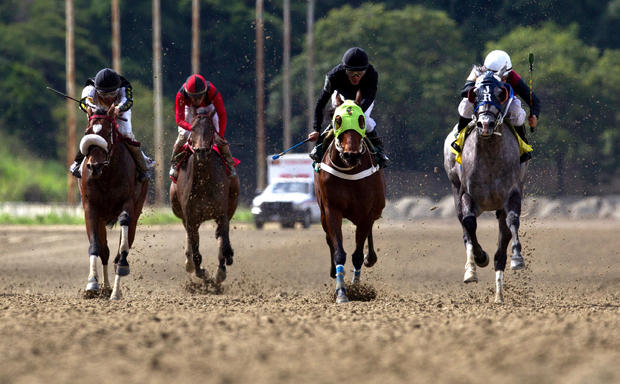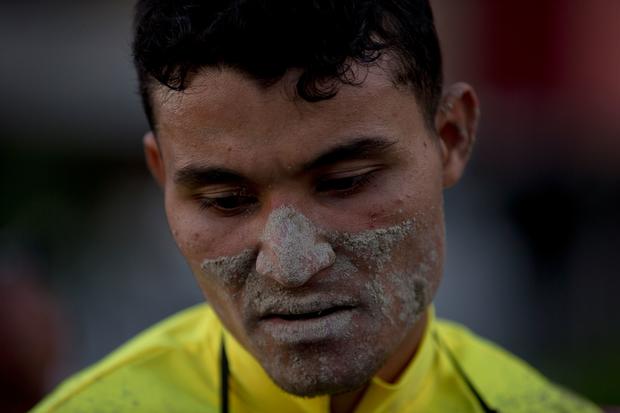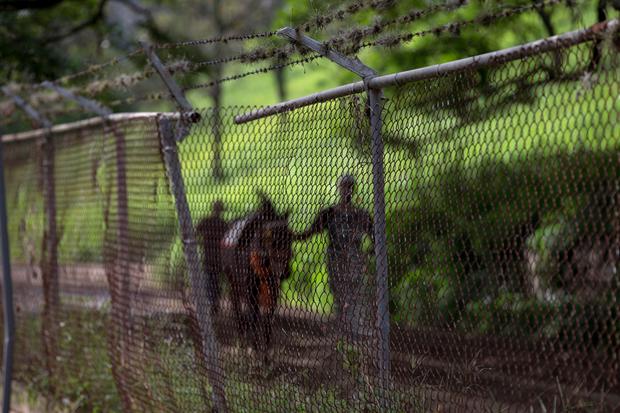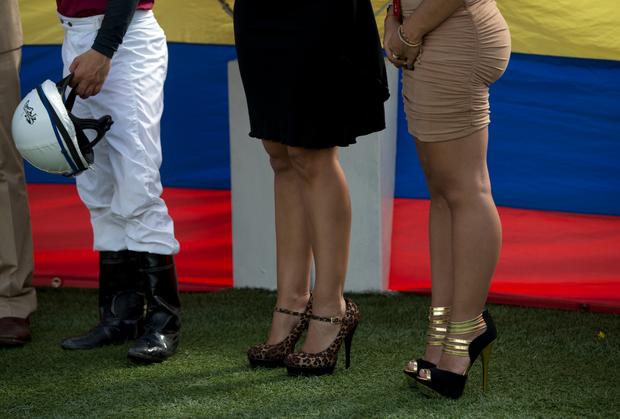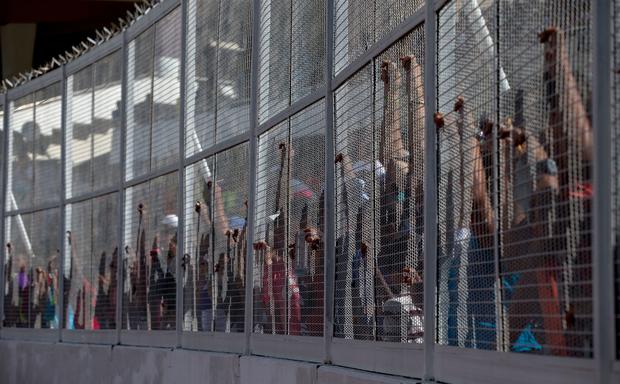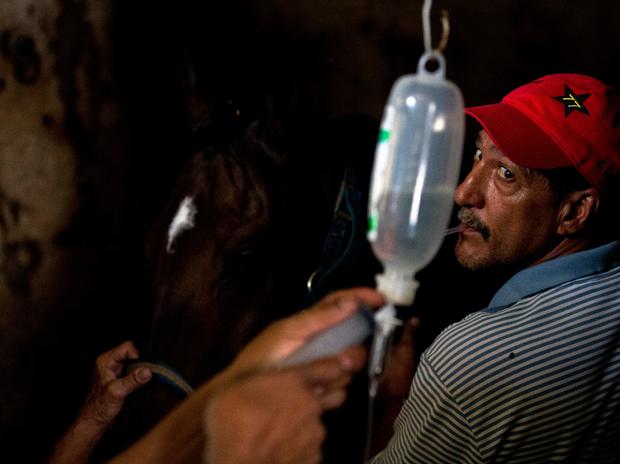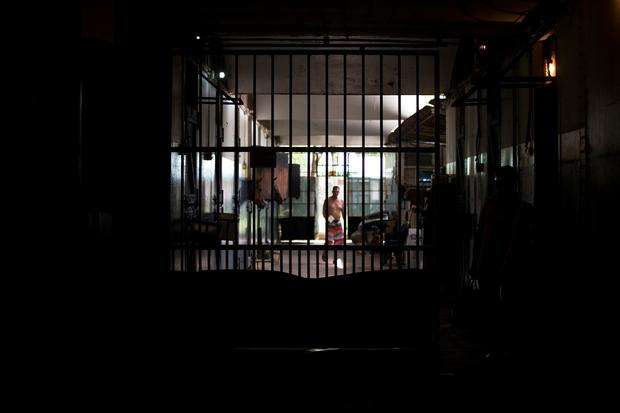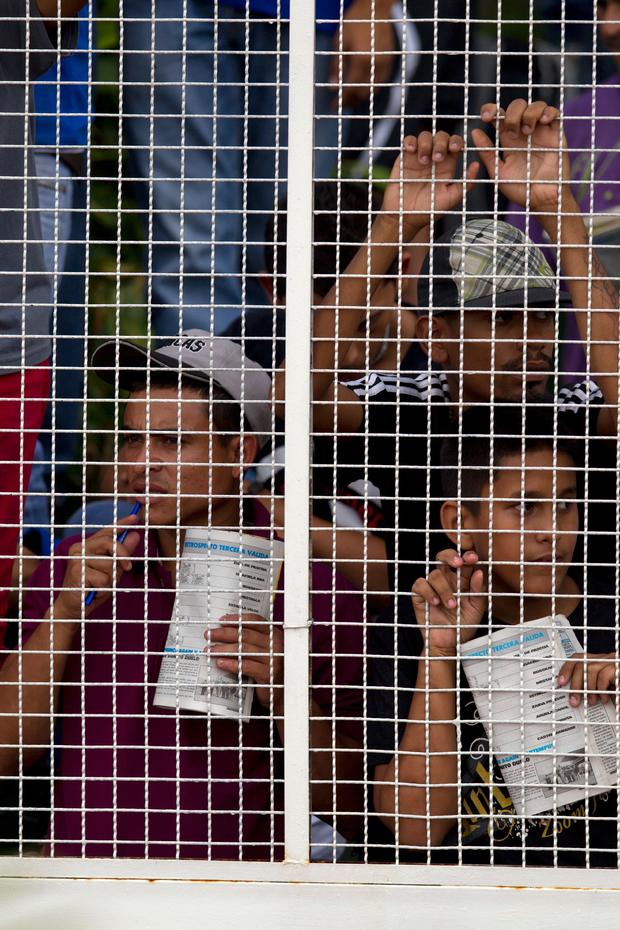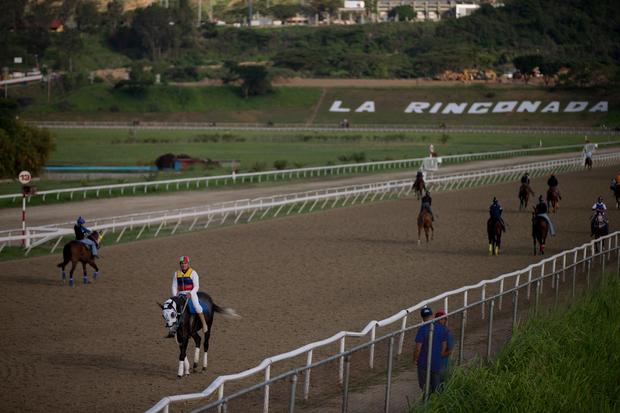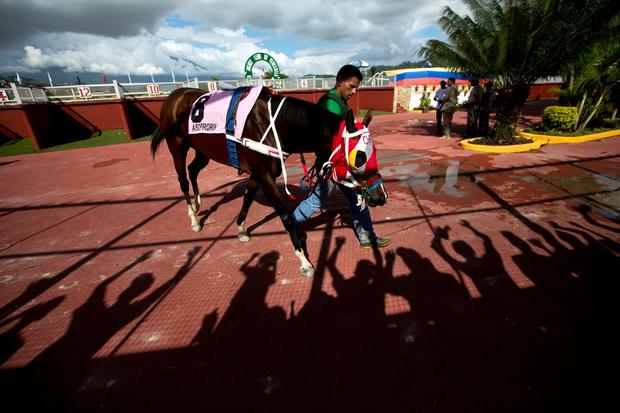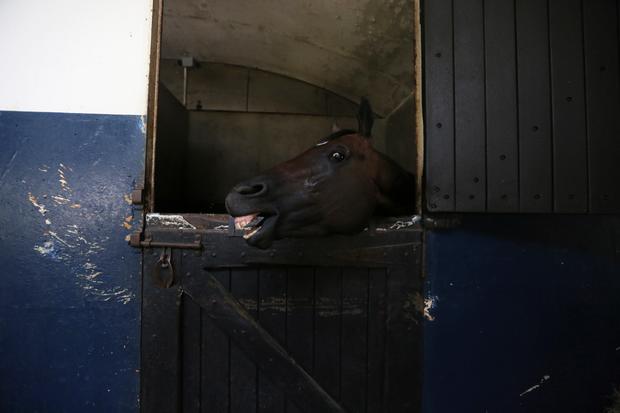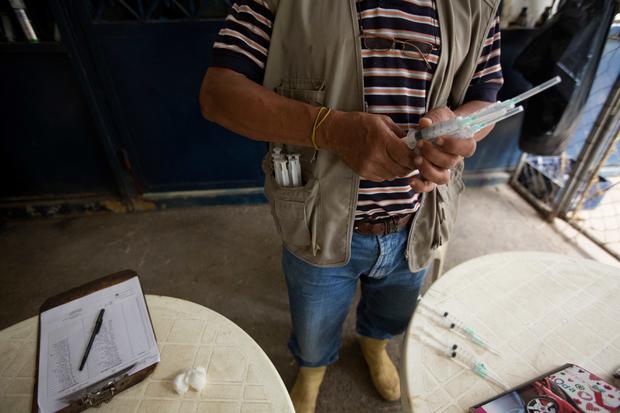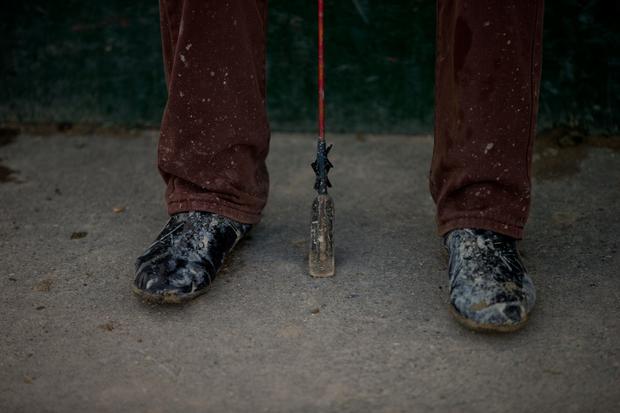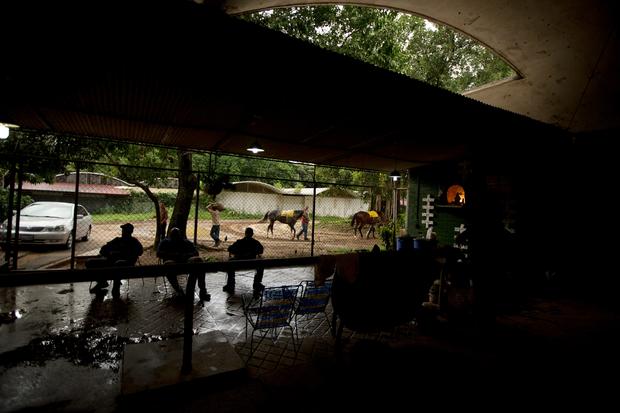The horse mafia of Venezuela
Horses cross the finish line during a race at La Rinconada racetrack in Caracas, Venezuela, Oct. 5, 2014.
Gambling on horse races is legal in Venezuela, but the socialist government tightly controls betting at the country’s four racetracks and 1,200 off-track betting houses.
The real money is in illegal betting as Venezuelans try to boost the value of their rapidly-devaluing bolivars.
Caracas
A jockey with his face soiled with sand is weighed after a horse race at La Rinconada racetrack in Caracas, Venezuela, Oct. 5, 2014.
Gambling rings have been known to kidnap and threaten jockeys in order to fix races.
Caracas
A horse is walked back to his stable, passing a dilapidated fence at La Rinconada racetrack in Caracas, Venezuela, Aug. 28, 2014.
Venezuelan authorities say a gambling ring poisoned one of the country's most popular race horses ahead of a key derby, nearly killing the animal and shining a light on an underworld where millions of dollars in bets are made under the table.
Caracas
A horse eats hay at his stable in La Rinconada racetrack in Caracas, Venezuela, Aug. 26, 2014.
After the poisoning of Rio Negro, a four-year-old horse, favorite to win the Army Day derby, authorities have arrested nine people in the case.
Caracas
Manuel Melean, left, waits for his trophy, beside protocol staff at the podium after winning a horse race at La Rinconada racetrack in Caracas, Venezuela, Oct. 5, 2014.
Illegal gambling is driven by a limit of 1,000 bolivars on bets, or about $10 at the black market rate.
Caracas
Gamblers watch the horses walking around the paddock prior a race at La Rinconada racetrack in Caracas, Venezuela, Oct. 5, 2014.
Caracas
Gustavo Campos, a foreman, applies a moisturizing serum to a horse after a training session in La Rinconada racetrack in Caracas, Venezuela, Aug. 26, 2014.
The wave of violent crime that had already made Venezuela one of the world’s deadliest places has now caught up with the horse races, amid growing concerns about attempted race-fixing by well-organized illegal gambling rings.
Caracas
A horse keeper walks in front of iron bars built to prevent the trespassing of strangers into the horse stable in La Rinconada racetrack in Caracas, Venezuela, Aug. 26, 2014.
After Rio Negro, a 4-year-old horse, was injected with a near-fatal overdose of cortisone in a brazen attempt to fix the Army Day derby he was favored to win, the horse is now kept in a dark, cold stable that looks more like a prison with iron bars and a proliferation of security cameras to ward off intruders.
Caracas
Gamblers watch horses walking around the paddock prior to a race at La Rinconada racetrack in Caracas, Venezuela, Oct. 5, 2014.
Last year, the horse racing industry in Venezuela took in almost 94 million euros in bets, according to the Paris-based International Federation of Horseracing Authorities.
Caracas
A jockey wearing the Venezuelan national colors rides a horse during an early morning training session at La Rinconada racetrack in Caracas, Venezuela, Aug. 27, 2014.
Caracas
A horse is walked around the paddock in front of fans prior to the start of a race at La Rinconada racetrack in Caracas, Venezuela, Oct. 5, 2014.
Caracas
Rio Negro, a thoroughbred horse, calls for food at his stable at La Rinconada racetrack in Caracas, Venezuela, Aug. 26, 2014.
Rio Negro was the rising star of Venezuela's racing season, but now this rail-thin, wart-riddled race horse is fighting for his life.
Police don’t know who injected him with an overdose of powerful steroids, but there can be no doubt the perpetrator’s intention: to knock the thoroughbred out of competition on the eve of an important derby he was favored to win.
Caracas
A horse keeper prepares vaccines and vitamins for horses, in preparation for the weekend incoming race at La Rinconada racetrack in Caracas, Venezuela, Aug. 27, 2014.
The state-run horse racing agency says that on any given Sunday the government’s take from wagers at La Rinconada can surpass $3 million.
Caracas
A jockey's muddied boots and riding crop after a training session at La Rinconada race track in Caracas, Venezuela, Aug. 28, 2014.
According to Jaime Casas, who runs the Hipicomputo 2000 website that tracks race results, illicit betting rings move between 50 and 60 times the legal market for gambling.
Caracas
A bodyguard sits in the stable where Comediante, a thoroughbred race horse who has already been poisoned once, is kept, at La Rinconada racetrack in Caracas, Venezuela, Aug. 28, 2014.
After the attack, security for the horses has been stepped up to prevent further attempts at race fixing by injuring the animal.
